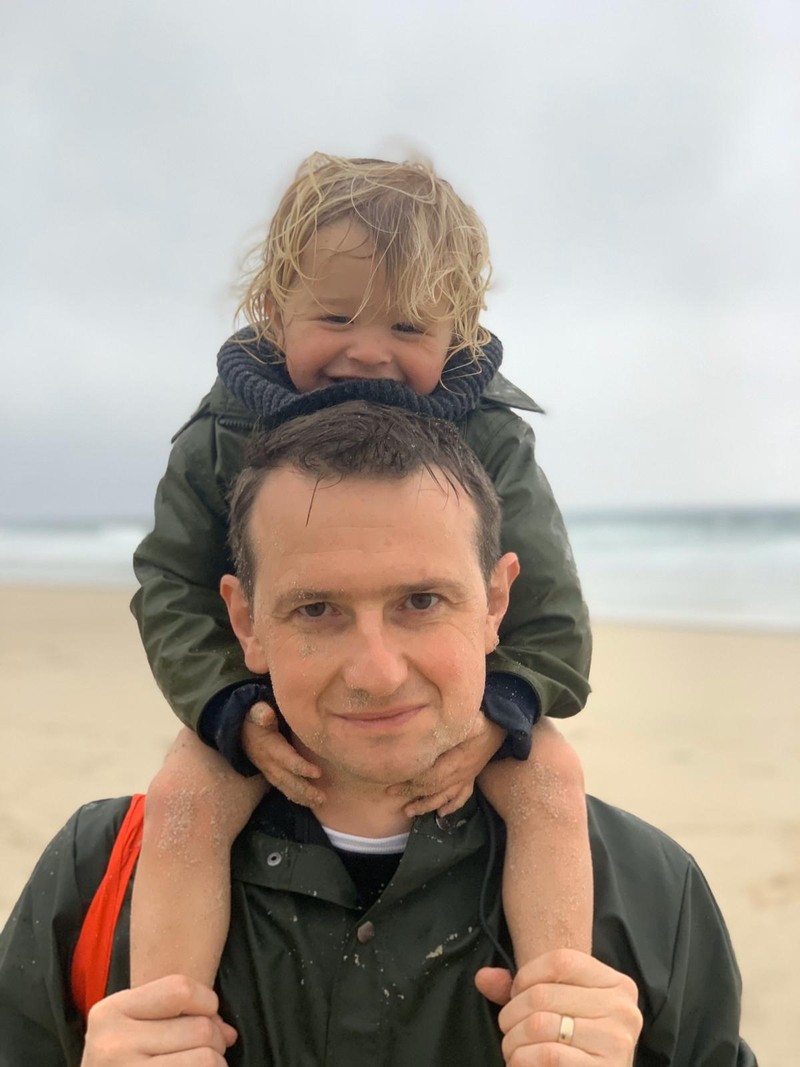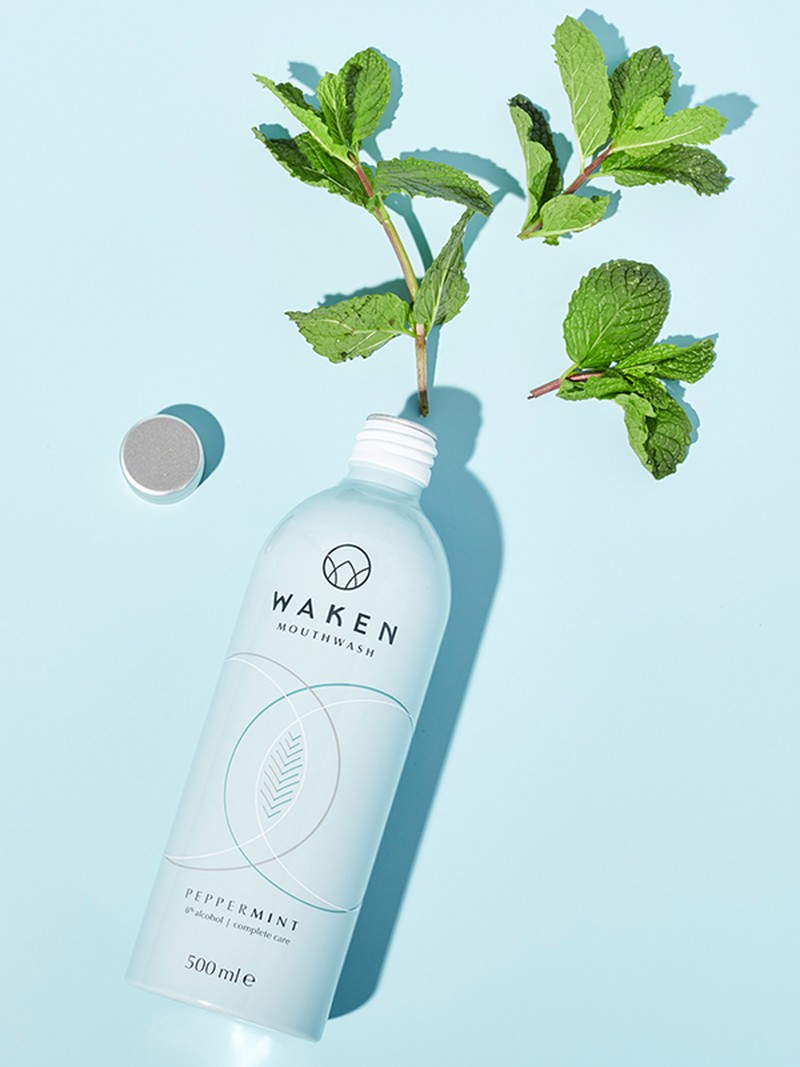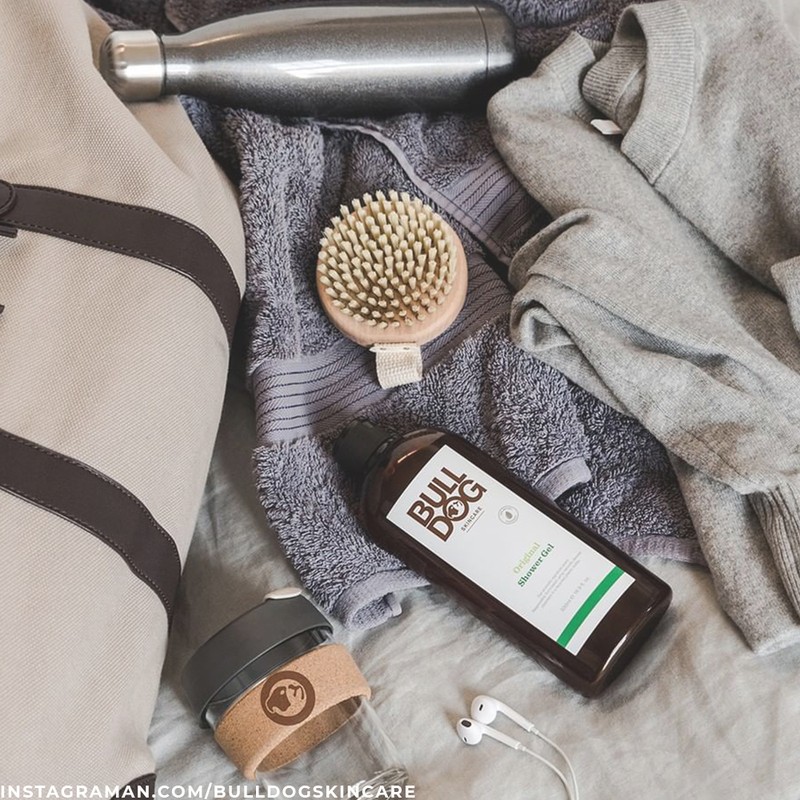How Simon Duffy Is Disrupting An Entire Industry

Tell us a bit about yourself, Simon… How did you get to this point?
I’m 43 and I’ve been married for 13 years to a writer I met in New Zealand. We have three kids and now live in Queen’s Park. After university, I went to Auckland and joined the Saatchi & Saatchi ad agency, then moved to New York with the innovation consultancy Fahrenheit 212. In the US, I worked on innovation strategies for the likes of Coca-Cola, Starbucks, Diageo and P&G. These were great learning experiences and they encouraged me to think more entrepreneurially about how I wanted to spend my time. I came back to the UK in 2006 to work on launching my first company, Bulldog Skincare.
And how did that go for you?
After fundraising and planning, we launched our first six products in Sainsbury’s in 2007. Back then, the men’s skincare aisles were packed with traditional brands all formulating in pretty much the same way. For example, a lot of the products included microbeads (now banned in the UK) and many of the brands were testing on animals. We saw a big opportunity to bring something new to the grooming market, which we could also see growing quite rapidly because men were more invested in skincare than they had ever been.
At Bulldog our focus was on delivering amazing performance while formulating with natural ingredients and using more sustainable processes across our manufacturing and packaging. Over the years, we had a few industry firsts for men’s grooming, including the first sugarcane plastic tubes and the first mass-market bamboo razor. Today, Bulldog has won many grooming awards around the world, has global retail sales of more than $100m per year, and is present in more than 30 countries.
But you still sold it?
We sold Bulldog towards the end of 2016 and I left my full-time role there at the end of 2018, although I am still involved part-time today. Since the beginning of last year, I’ve been working on my new company, Waken. We’re setting out to disrupt the global dental market with modern and progressive versions of everyday products like mouthwashes and toothpastes. At the end of last year, we debuted four mouthwashes in Boots and Sainsbury’s stores nationwide, and we’re now also on Amazon and Ocado.
What do you think makes Waken disruptive?
A lot of the core pillars of Waken – sustainable alternatives, natural ingredients, disruptive packaging – are similar to those we used to build Bulldog. Dental products right now are still very old fashioned, and they have an appalling record when it comes to thinking sustainably and about ‘beautiful’ packaging. There is lots of work to do!
Had you always planned to do your own thing?
Yes, I’ve always been inspired by enterprise, but I will be honest and say that working in personal care hasn’t always been my plan. What interested me about both skincare and dental care is my passion for sustainability and for the ethics around animal cruelty. Before launching Bulldog and Waken, I found it frustrating that products in these areas were not more readily available in everyday stores like supermarkets.
Do you feel you’re on the right path now?
For sure. There were certainly a few ups and downs along the way, but the decision to leave a traditional career path to do my own thing is not something I’d ever regret or would want to change. As I’m sure is the case with a lot of other entrepreneurs, I relish the opportunity to work with some brilliant people to build a great team together.
What do you relish about having your own business?
I love the challenge and the sense of adventure. I’m inspired by the creativity inherent in trying to reimagine a traditional category. I also enjoy the hard work and accountability that comes with a small team – you can see more of a straight line connecting outcomes with what you put in. Being an entrepreneur always gives you the opportunity to learn new things and meet new people from a variety of sectors. As a dad with a young family, it’s also great to have a little more flexibility in terms of scheduling your time.
/https%3A%2F%2Fslman.com%2Fsites%2Fslman%2Ffiles%2Farticles%2F2020%2F06%2Flemonmint-pour-r.jpg?itok=HI0vMl4x)
Do you enjoy it?
Absolutely. There’s a really special feeling you get when you see someone putting a product that you have created into their shopping basket.
How did you get through the early days of Bulldog?
It was difficult and more than a little daunting. We lost money for more than two consecutive years and we had virtually no resources to grow our team or undertake more ambitious marketing plans or international retailer launches, which were all fundamentals to help us achieve our business goals. We scrutinised every outgoing and were relentless when it came to improving our model to make it more efficient. I think the good thing that came out of this period is that we built a good foundation and culture for when we were able to scale more quickly in the second phase in Bulldog’s growth.
What lessons did you take away from your experience with Bulldog?
Two big things. First, I learnt it’s good to stick to your principles around sustainability and being cruelty free, as in the long term the strongest brands are those that actually stand for something. I also learnt that big changes could come from small beginnings, particularly when you can see the trends emerging in other areas. Just look at the transformation of the beauty industry over the last several years by wellness, naturals, sustainability and more beautiful packaging design. By contrast, the dental products industry feels stuck in the past. I’m not sure things have really changed that much in the last 20 years.
How do you get a product into a major retailer?
The most important thing is to create a great product. It sounds obvious, but it’s worth emphasising that retailers are looking for meaningful differentiation versus what they currently sell. It’s no good offering something that’s more or less the same as the incumbent brands.
When you’re ready to make your pitch, access to the right people at big retailers can be a little tricky so you need to be persistent. LinkedIn is a great resource now. When we started Bulldog, I had to rely on trying to find people on the phone via the central switchboard. Sainsbury’s is a really progressive retailer that has started a special scheme called Future Brands for introducing new brands to big retailers for the first time.
Is now a good time to be launching a business?
If you are in the lucky position where you can think about launching a business at the moment, I think you should feel confident that now is a great time to get started – for two main reasons.
Firstly, we’re going through a period of reappraisal. Trends that started before Covid-19, such as online shopping and working from home, have been accelerated. This means a lot of the old business models have suddenly started to feel more old fashioned. There are going to be a whole host of exciting new businesses starting that are better suited to the new normal.
Secondly, there are a lot of online resources and networks that can help new entrepreneurs to learn and be nimble. Shopify is such a simple way to launch an online business. The SEIS and EIS government schemes are great for encouraging investors to back your business. The Business and IP Centre at the British Library is a great place to start looking for everything from free data to business mentors and training.
How did you spot the opportunity for Waken? Do you have a blueprint for spotting these opportunities?
I don’t have a blueprint per se, but the opportunities that interest me the most are those that involve disrupting a big market with a more sustainable version of the future. I want the companies I work for to contribute in a positive way towards industry debate and progress, and I want the products we sell to offer brilliant experiences at affordable prices in mainstream retailers. Accessibility is really important to me.
What do you think gives Waken an edge?
From my perspective, nothing much has changed with mouthwash for a long time, except perhaps that the biggest brands are now much easier to find in discount chain stores. It’s a part of the oral care market that is witnessing a gradual decline in sales and relevance to consumers. On this basis, there is a fantastic opportunity to reimagine what mouthwash can be.
The motto on our pack is, ‘Don’t just clean. Care’. For too long, the dental industry has seen the mouth as something to do things to: we clean it, we scrub it, and we swish it. The typical language feels quite aggressive. Nowadays I think claims around killing 99.9% of germs feel more akin to floor-cleaning products. Over the next ten years I believe we’ll see an increasing awareness of the role our mouth plays as a gateway to our overall health and wellbeing. The scientific community are increasingly finding links between poor oral health and a range of serious medical conditions. In the years to come I think we’ll all be thinking about our dental care in a much more holistic way.
It’s sustainable. It’s vegan friendly. It’s beautiful. Waken seems to be doing a few different things – which one is most important to the business?
Ethics without compromising on efficacy is the most important. The number of plastic toothpaste tubes that end up in landfill every year is utterly mind-boggling. We all must think more sustainably. However, the most effective way to encourage people to adopt a different kind of product is to create something that is not just more thoughtful on an ethical dimension, but also something that tastes delicious, performs brilliantly and is competitive with the existing brands on price.

On your website, you’ve not gone big on the ‘science’ behind Waken. That seems unusual for a personal care brand – is that a conscious point of differentiation?
That’s great feedback because actually there is a great deal of science that goes into making Waken products, so perhaps we should share more information on this on our website. We work with leading formulation experts and product performance is always thoroughly tested prior to launch. It’s actually a very regulated industry and, as you would expect, we have followed all the required steps.
What’s next for Waken?
A great deal! We’ve been using the lockdown period as productively as possible. We will have a great many more flavours to launch, and many other new products. We’re also keen to export Waken to the international markets we know well from the Bulldog days.
How far can Waken go?
I’d love for Waken to be present in bathrooms worldwide. We also want to inspire change in the dental category as a whole. Nothing would please me more than the biggest dental brands starting to add sustainable thinking into their approaches. I also think we’ll see a flourishing of new dental brands putting wellness and sustainability to the fore. Competition is a really healthy thing and I think we can all look forward to an exciting period in this area.
Where do you reckon you’ll be in five years’ time?
In five years, I hope Waken has learnt, optimised and expanded to become a major mouthcare brand. While I’m sure our team will be bigger by then, I hope the core group we already have in place are still leading the charge.
Finally, you’ve done men’s grooming and oral care. What’s next in your sights?
I think there is so much opportunity in consumer products. One of the great things I’m seeing is that more and more people are encouraged to start an entrepreneurial project. I’m 100% focused on Waken and I suspect those other product categories I’ve been intrigued by will look very different by the time I’m ready to start something new. But you never know.
SIMON’S THREE TIPS FOR ANYONE STARTING THEIR OWN BUSINESS
- It’s impossible to figure everything out before you start. You need to get started and remain open to learning as you go.
- Focus on building long-term relationships across your business –with manufacturers, suppliers or retailers. Collaborating effectively is key.
- Build a brilliant team and recognise that your main role is to encourage and support them to achieve their goals. The Waken team are a source of daily inspiration for me.
Simon Duffy is founder of Waken Mouthcare and Bulldog Skincare. For more information, visit WakenCare.com and follow @WakenCare
DISCLAIMER: We endeavour to always credit the correct original source of every image we use. If you think a credit may be incorrect, please contact us at [email protected].


